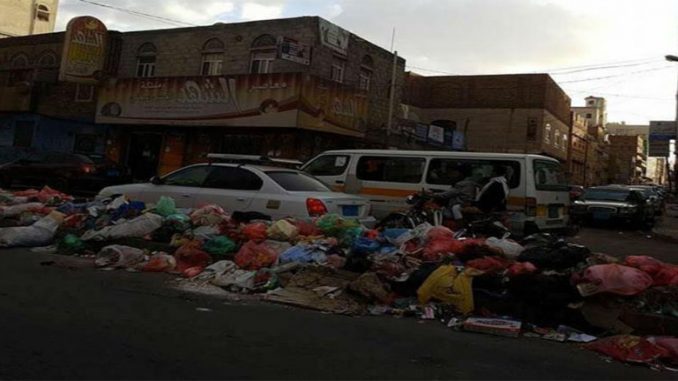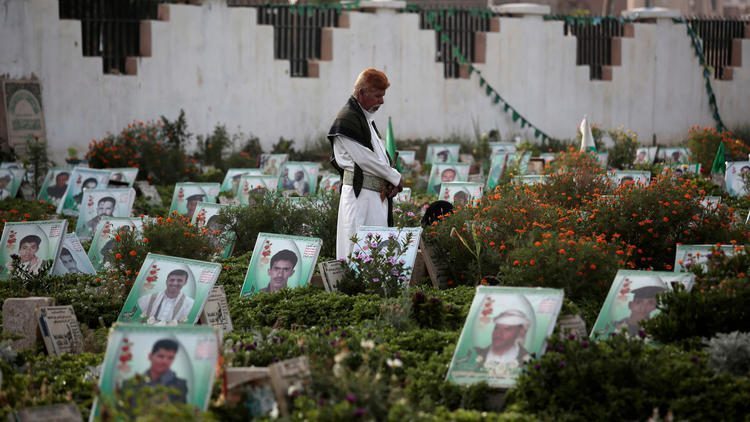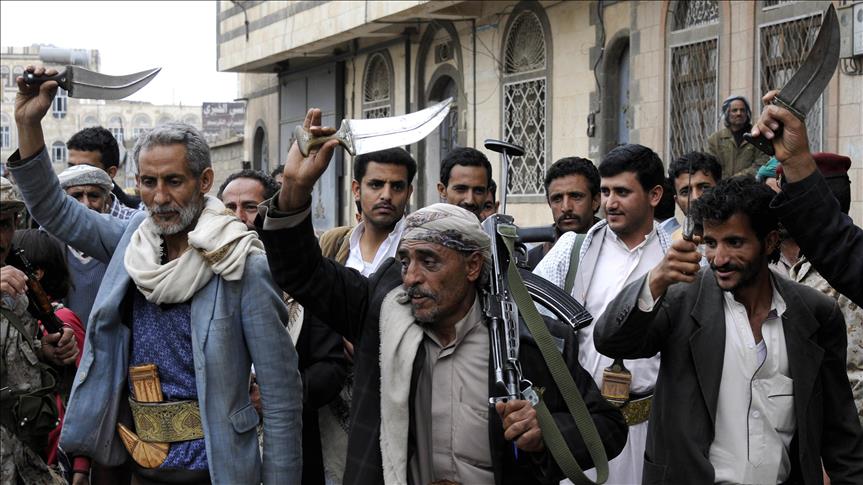
According to local reports, the number of cholera cases in Sana’a has risen to 218 across various districts and four deaths have been recorded.
The health of civilians are being put at risk in Sana’a as the city is left to deal with a flood of garbage being left on the streets.
Sana’a, which has been under Houthi control since September 2014, who came to power through a blooded coup is going through a garbage crisis, amid widespread negligence in sustaining public services.
“The Sana’a government has cut down the salaries of the cleaning staff for almost six months from now,” UN Environment Regional Representative for Civil Society NGOs in West Asia, Tareq Hassan told The New Arab.
“They decided to go on strike because their salaries are being cut,” he added.
The spat between the government and public sector workers has had detrimental effects on civil society.
According to local reports, the number of cholera cases in Sana’a has risen to 218 across various districts.
There have been four confirmed deaths as a result of the outbreak of the illness.
“Local NGOs and International NGOs have raised a substantial amount of awarenss for what is happening, though awareness is not sufficient, nor is it enough,” said Tareq Hassan.
“I think the solution would be to guarantee workers their salaries, at least enough to live on. No one can expect them to work without salaries.”
Public services fell into an abyss in Sana’a after the Houthi rebels orchestrated a coup on 21 September 2014.
After the Saudi-led coalition began their operation in Yemen, Sana’a’s infrastructure took a further blow.
Last Semptember, Yemen’s exiled Hadi government moved Yemen’s central bank from Sana’a to Aden, in an attempt to suppress Houthi’s hold on the financial institution.
At the time of the move, then newly appointed bank manager Monasser Al Quaiti had accused the Houthis of instigating corruption.
Quaiti stated that salaries paid by the central bank to pro-Houthi officials and militiamen was the primary reason behind the plummeting of foreign exchange from $5.2 billion in September 2014 to less than $700 million by the end of August 2016.



